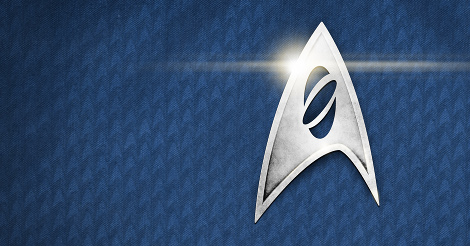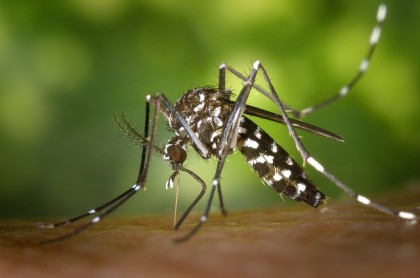
I’d love to know more about your career journey. Are you working in academia or do you have what is currently called an alt-ac (alternative to academia) career? How did you get there?
I touched on this briefly in my very first post 3 years ago, in a fairly obtuse way. I mentioned some more details while discussing the topic of private sector careers. But given how much I focus on esoteric science, and given how popular practical, career-oriented posts are on this blog, I think a more straightforward answer to this question wouldn’t go amiss. Plus, as they say in the comic book biz, every issue is somebody’s first!
My current job is so alternative to academia that I don’t even think it fits into common notions of “alt-ac.” I am the Chief Science Officer at Health Monitoring, a small software company serving public health. (I like using my job title because I have the same job as Mr. Spock from Star Trek; I dislike using my job title because it sounds like I’m trying to impress people when it’s really just the Spock thing.) When someone goes to the hospital because, say, they are coughing and have a fever, we get that (anonymized) information. When a lot of people go to the hospital for the same reasons, we let public health know and provide them some tools to help them investigate. (Incidentally, it’s back-to-school time, so there’s lots of coughing and having a fever going around; get your flu shot!) I’ve been working there for 7 years; the company has existed for 9.
My job involves exploring new data sources and how they can (and cannot) help our customers, identifying new statistical techniques we can implement, and generally keeping up with the directions public health is moving in. In addition to keeping tabs on things like the flu, I’ve had the chance to work on water quality monitoring, veterinary health, and prescription painkiller abuse. I’ve helped our customers use our data and software to keep tabs on a Super Bowl, figure out how severe weather impacts healthcare needs, and explore the consequences of insurance policy changes on healthcare usage. And, since we’re a small company, I’ve had to troubleshoot database problems at 2am and perform public health interventions in the form of cleaning moldy food out of the shared fridge.
I got this job because I was already at the intersection of many of the company’s domains. I did my PhD at the Bloomberg School of Public Health, so I spoke the same language as our customers. I had studied the biology of infectious diseases, and tracking infectious disease outbreaks was the primary focus of our customers when I started. I had learned statistical analysis as a graduate student, and as a postdoc in computational biology at Carnegie Mellon. And I knew how to write computer programs because, well, I was a nerd who grew up in the 80s.

I also got this job because academia didn’t have a spot for me. As my postdoc was finishing up in 2008, I certainly applied for a variety of academic positions, but none of them expressed any interest whatsoever. It’s tempting to blame this on the general state of the economy (you may recall that the fall of 2008 was not a great time for job seeking) and the shrinking of research funding budgets for junior scientists. Those may have been factors, but in hindsight there were likely personal reasons as well. I was not a prolific publisher as a grad student or a postdoc, always erring on the side of “this isn’t significant enough to publish.” I was terrible at networking at conferences; I’d attend as many science sessions as I could, then go hide in my room because I was socially spent. I didn’t seek out any career advice. I was there to learn science, but I didn’t learn how to be a scientist.
What I did learn how to be was a translator. I suppose that started as an undergrad in InterVarsity. I also went to Carnegie Mellon for my bachelor’s degree, in biology, and on such a STEM-oriented campus it would have been easy to always be surrounded by people with similar interests. The IVCF chapter cut across the typical campus divisions, providing me an opportunity to interact with writers, musicians, and artists. I got plenty of practice talking about my interests with folks from very different disciplines, and to hear from them about theirs. Just to make sure I kept up that practice, I married one of those artists. (Today is our 15th anniversary, incidentally, which may be another reason I was inclined to indulge this walk down memory lane.)
In graduate school, I was in a department with a focus on molecular biology and laboratory science. While there, I realized I didn’t “have the hands” for bench science and transitioned towards a more quantitative research track, which I was fortunately able to do within that same department. I got to present my statistical research to biologists on a regular basis, and see other statisticians do the same.
I did a postdoc with a professor who had already had a distinguished career in computer science and machine learning and who wanted to transition into computational biology. I taught him biology and he taught me machine learning. Then we’d go have meetings with other biologists to try to establish collaborations, and I’d help translate between the parties (the word “vector” means a lot of different things in different fields, as it turns out).
I like to think all of that practice translating across disciplines helped me prepare for my current job, and also for writing this blog. Along the way, I also became more interested in translating between science and theology. I’m sure I have a lot more to learn and more skills to hone, but I definitely appreciate how this blog has created opportunities to remained connected to the larger academic world even though I don’t report to a campus every day.
Housekeeping: I said I’d do some lead-in to these reader questions, but this one was fairly straightforward. Next month, I’ll try to find a couple of news items leading up to this question: “What makes statistical modeling different from, say, new age methods of trying to predict the future?” Also, look for a book review later this month on the topic of God’s providence and the problem of evil.
Andy has worn many hats in his life. He knows this is a dreadfully clichéd notion, but since it is also literally true he uses it anyway. Among his current metaphorical hats: husband of one wife, father of two teenagers, reader of science fiction and science fact, enthusiast of contemporary symphonic music, and chief science officer. Previous metaphorical hats include: comp bio postdoc, molecular biology grad student, InterVarsity chapter president (that one came with a literal hat), music store clerk, house painter, and mosquito trapper. Among his more unique literal hats: British bobby, captain’s hats (of varying levels of authenticity) of several specific vessels, a deerstalker from 221B Baker St, and a railroad engineer’s cap. His monthly Science in Review is drawn from his weekly Science Corner posts — Wednesdays, 8am (Eastern) on the Emerging Scholars Network Blog. His book Faith across the Multiverse is available from Hendrickson.

Leave a Reply